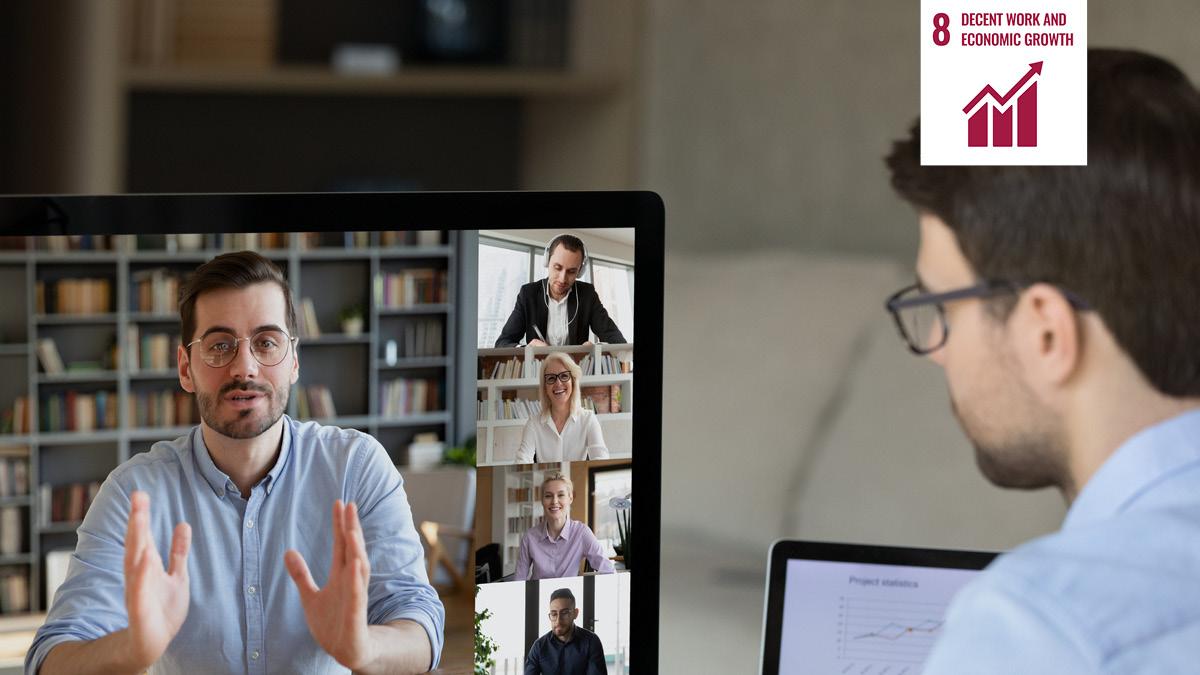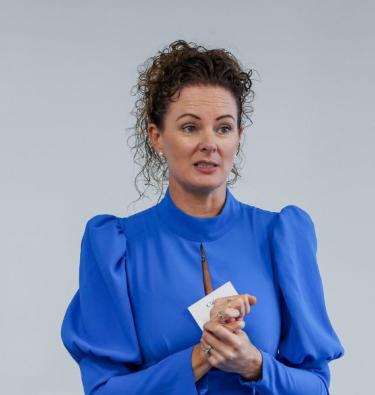
Earlier this year, Facebook’s parent company Meta paid £149 million to break its lease on a central London office space. Additionally, the company’s new European HQ in Dublin was originally intended to inhabit a larger site. Following a period of allowing employees to continue remote work after the pandemic, the social media company now stipulates working from the office at least three days a week. However, their diminished need for office space is perhaps telling.
Other companies such as Adobe are still offering employees the choice to work entirely remotely. As more workers are making flexible working arrangements a priority when selecting a job, other companies are following suit. However, remote working can be challenging for interns as they look to learn as much as possible during their time at a company and develop relationships with organisational members.
The icon on this article represents contribution towards the UN Sustainable Development Goals. The Sustainable Development Goals are 17 objectives designed by the United Nations to serve as a shared blueprint for peace and prosperity for people and the planet.
Stepping stone
Internships have long been a key stepping stone for recent graduates, and a recruitment tool for companies. But how can they best operate in a hybrid working environment? Also, what do companies need to do in order to ensure they are prepared for situations where office working is suddenly not feasible?
In 2021, DCU researchers partnered with Deloitte to answer these questions. The research took place in the context of remote working during the pandemic. However, as hybrid working models continue and some organisations have opted to retain some elements of virtual internships, the same challenges and opportunities remain. Deloitte’s policy allows employees to determine their own degree of remote working, taking into account the needs of their team and the nature of their role.
Initiated to serve as a resource for students and organisations participating in the DCU Access to the Workplace programme, the research is based on insights from 22 organisations. The internship models at these organisations ranged from single participant programmes to those with interns numbering in the thousands at multinational companies.
Challenges taking in the social environment
Specific challenges encountered included that by not experiencing the “social” work environment in-person would limit interns’ opportunity to build their social network, develop connections and truly see and feel organisational culture. Fewer opportunities to “fall into dialogue” around water coolers or coffee docks and the lack of random social encounters on corridors, at desks or canteens. Those short conversations prior to or post meetings were also missed. Such social interactions aren’t as straightforward in the digital context. The research identified that to counter this challenge virtual internship programmes needed to be more deliberate and have a more structured approach to socialisation than would be the case in traditional in person internships.
The researchers found that in addition to the difficulty in replicating the social environment, it was also more challenging to share tacit knowledge and facilitate informal learning by working with or observing others. The research identified some strategies to deal with this including virtual offices where everyone working online, cameras on, simultaneously, some in-person days or work shadowing via screen sharing However, overall the most effective strategy was dependent on the nature of the task.
The research also identified challenges with conveying organisational culture in virtual internships. Conveying organisational culture and the organisational brand is important for both the organisation and can be the basis on which interns have a good internship experience, feel they belong and may decide to return to that organisation. Being able to ‘feel’ and ‘see’ the organisational culture by time spent physically in the workplace is important. Strategies of hearing stories from past interns, line managers and senior managers to get a sense of the organisations values were also important.
A larger talent pool
While there are issues to address, there are positive aspects to remote internships. Employers found that while traditional internships favoured applicants who lived in cities where organisations had offices, virtual internships lead to greater diversity among applicants. In this more level playing field, there is potential to draw from a larger talent pool.
In addition, virtual internships enabled larger organisations to facilitate collaboration across teams, offices and even national boundaries, the like of which would usually be limited to the induction phase. For example, one organisation reported that traditionally they took interns on an overnight stay to a hotel near another site as part of their induction programme. With a virtual programme, they were able to offer this experience more consistently. This increased interns’ awareness of cross-cultural differences and broadened their understanding of the organisation.
Access to senior leadership
Finally, virtual internships gave participants greater access to senior leaders. In the past, this access may have been limited to those working at an organisation’s main location. Through live sessions, virtual coffee mornings and other networking sessions, all interns had more opportunities to interact with CEOs and other senior figures. In one professional services firm one of the mentors interviewed noted that there would be weeks where he would not engage with a partner, yet the interns engaged with partners on a weekly basis through these coffee sessions.
The DCU research team condensed the wide range of insights from this research into seven key practices for designing and delivering virtual internships. The final report delves into each of these recommendations in detail. In addition they created practical checklists for managers, mentors, and interns to allow them to actively address challenges and navigate their roles successfully in these virtual programmes. Taken together these recommendations guide companies through each stage of the process, enabling organisations to reduce the pitfalls of virtual internships and garner the greatest benefits for both the organisation and the interns.




